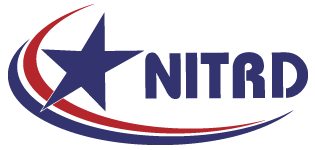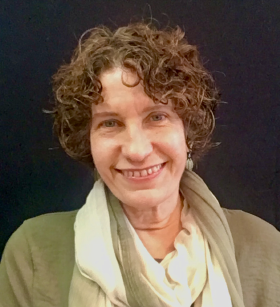NITRD 30th Anniversary Symposium
May 25, 2022
International Spy Museum (and via Livestream)
700 L’Enfant Plaza SW, Washington, DC 20024
Learn more about NITRD
Follow the conversations on Twitter
@compcomcon and @NITRDgov at #NITRD30th
The rich interplay between academia, industry, and government characterizes a unique US information technology innovation ecosystem that is second to none: over decades, it has given rise to multi-billion-dollar markets, transformed how we live and work, and helped solve some of our foremost societal challenges.
Thirty years ago, Congress recognized the importance of advancing federal investment in High-Performance Computing (HPC) and established a mechanism by which the Federal Government could maximize and coordinate its HPC research and development (R&D) investments. The HPC Act of 1991 has expanded in scope and evolved over the years into the Networking and Information Technology Research and Development (NITRD) program, with 25 Federal agencies. In fiscal year 2022, Federal agencies are investing approximately $7.8 billion in NITRD activities.
The NITRD 30th-Anniversary Symposium brought together leading experts from the government, academic, and private sectors to both mark NITRD’s past accomplishments and look to the future. The full-day agenda included speakers and panels in areas such as computing at scale, networking and security, artificial intelligence and machine learning (AI/ML), privacy, and the internet of things (IoT). As a group, they presented the latest advances and discussed where research is headed.
The Symposium has been organized by the Computing Community Consortium (CCC), in collaboration with NITRD National Coordination Office (NCO).
- Location: International Spy Museum, 700 L’Enfant Plaza SW, Washington, DC 20024
- Date/Time: May 25, 2022
- Agenda: NITRD-30th-Anniversary-Symposium-Agenda.pdf
- Attendance: In-Person attendance was by invitation only. The event was livestreamed via the web.
- Federal Register Notice: 87 FR 20888, Notice of the Networking and Information Technology Research and Development Program 30th Anniversary Symposium
- Pictures from the event are available: here
- Recording of the event is available: here
- CIFellows Poster Session: here
AGENDA
NITRD-30th-Anniversary-Symposium-Agenda.pdf
| 9:00 AM | Doors Open and Registration |
| 9:15 AM | Welcome and Introductions 
|
| 9:45 AM | Panel 1 – Computing at Scale 
As our lives become increasingly digital, cloud and HPC computing has transformed the way we interact, do business, do science, and entertain ourselves. Research investments in building distributed systems at scale, from algorithms, to networking, to operating systems, have enabled computation at a scale that was unimaginable 30 years ago. This rapid transformation creates unbounded opportunities but also raises new challenges to individual’s privacy, cybersecurity, and impacts on the social fabric of society. In this session, we celebrate the incredible achievements of HPC and cloud computing and consider the path forward. |
| 10:45 AM | BREAK |
| 11:15 AM | Panel 2 – Networking and Security 
Over the past few decades, the Internet and mobile phones have transformed the world. The underlying fixed and wireless networking infrastructure is being evolved by shifting and implementing more functionality in software. However, the software-enabled flexibility comes at a greater risk of security vulnerabilities. Given the critical importance of networking infrastructures around the globe, the security and trustworthiness of these networks is of paramount importance. This panel will look at the remarkable achievements in networking and discuss the key challenges and paths forward in securing this critical infrastructure. |
| 12:15 | Poster Session |
| 12:45 | LUNCH |
| 1:45 | Poster Session |
| 2:05 | Barbara McQuiston, Director of Defense Research and Engineering for Research and Technology, DoD |
| 2:15 | Panel 3 – Artificial Intelligence/Machine Learning 
Advances in artificial intelligence and robotics have transformed all of science and engineering and nearly every sector of our economy. This panel will characterize seminal federally-funded advances over the last three decades leading to today’s AI/robotics revolution, along with the challenges of fairness and trustworthiness that society faces in the years ahead. |
| 3:15 | BREAK |
| 3:45 | Panel 4 – Privacy and Internet of Things 
Large-scale data analytics is enabling profound advances and new benefits in areas such as medicine, engineering, transportation, and agriculture. Preventing adverse privacy effects arising from such information processing is one of the great challenges of the digital age. The Internet of Things (IoT), a new domain of interconnected sensors, devices, and actuators, has the potential to further exacerbate negative impacts on privacy, as a myriad of sensing devices collect data and are combined into monitoring, tracking, and control systems in sectors such as healthcare, transportation, home and urban automation, and law enforcement. This panel will discuss the competing challenges of data use and privacy, and outline research goals to advance the technical, social, and policy solutions. |
| 4:45 | Technology & Society Video: Socially Responsible Computing 
|
| 4:50 | Panel 5 – How Technology Can Benefit Society: Broadening Perspectives in Fundamental Research 
While breakthroughs in networking and information technology supported by the NITRD program over the last three decades have had profoundly positive impacts on our society, we have also borne witness to the negative and oftentimes unintended consequences of such advances. For example, in recent years, innovations in generative adversarial networks have served to advance our understanding in fields as diverse as astrophysics and biology, they have also been the basis for the production of fake photographs and videos, threatening information integrity. Given the ubiquity of information technology research outputs in our daily lives, understanding how to “design in” ethical principles and responsible practices – and how to ensure a diversity of thought and perspectives in the design formulation – is increasingly critical. This panel will focus in on this aspect of the NITRD research space. |
| 5:50 | Thank You and Wrap Up
|
| 6:00 | Reception |
| 7:00 | Networking in the Museum |
In-Person attendance was by invitation only. The event was livestreamed via the web. Recording of the event is available here

Elizabeth Bradley
Chair, Computing Community Consortium, and Professor, University of Colorado Boulder

Erwin Gianchandani
Assistant Director for Technology, Innovation, and Partnerships (TIP), National Science Foundation

Charles Romine
Director, Information Technology Laboratory, National Institute of Standards and Technology






























